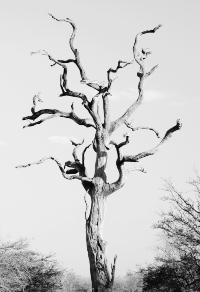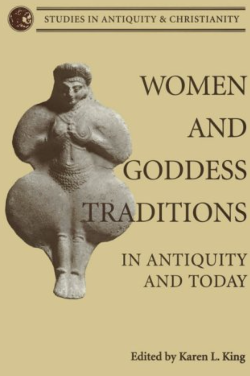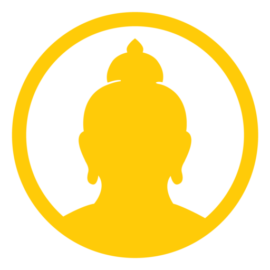Not Misusing Sexuality: The Naked-Woman Koan
“All of the buddhas of the three worlds, the six ancestors, and all the great monks everywhere—they all come out from within this.”

The koan that I'll share here is less widely known than the focus koan for the first post in this series, "An Old Woman Burns Down a Hermitage." Also unlike the first koan, this one is portrayed in the literature as a true dharma story.

After I share the naked-woman koan, I'll offer a little commentary to place it in the context of precept practice, give you some checking points for inquiry, and close with some background and resources for our dharma hero du jour, Miaozong.
In the middle twelfth century China, Miaozong was a woman householder in her thirties (she later became a monastic) who had given birth to a handful of babies. Wanan, who you'll also meet below, was a male monastic. Both were students and became successors of Dahui, a master to whom we today owe so much.
In the case below, you will find a few actions that you might see as misusing sexuality, like getting naked and teasing another's desire to prove a dharma point. There's also pointing disparagingly at someone's genitals and asking what the hell that is. And Dahui calls Miaozong a "beast" to top it all off. Although I recommend against trying any of these at home, they are not the heart of the matter.
What is the heart of the matter? I'll get to that, but first a pointer and the case at hand:
The naked woman koan
Wanan relied on Dahui, and served as his Senior Monk at Dahui’s monastery at Chingshan. Before Miaozong had become a nun, Dahui lodged her in the abbot’s quarters. Wanan always made disapproving noises. Dahui said to him, “Even though she is a woman, she has strengths.”
Wanan still did not approve. Dahui then insisted that he should interview her. Wanan reluctantly sent a message that he would go. Miaozong said, “Will you make it a Dharma interview or a worldly interview?”
Wanan replied: “A Dharma interview.”
Miaozong said: “Then let your attendants depart.”
She went in first, and then called to him, “Please come in.”
When he came past the curtain, he saw Miaozong lying face upward on the bed without anything on at all. He pointed at her genitals and said, “What kind of place is this?”
Miaozong replied: “All of the buddhas of the three worlds, the six ancestors, and all the great monks everywhere—they all come out from within this.”
Wanan said: “And would you let me enter, or not?”
Miaozong replied: “It allows horses to cross; it does not allow asses to cross.”
Wanan said nothing, and Miaozong declared: “The interview with the Senior Monk is ended.”
She then turned over and faced the inside. Wanan became embarrassed and left.
Dahui said, “It is certainly not the case that the old beast does not have any insight.”
Wanan was ashamed.

Comment
First, the center piece of the koan is the strikingly physical and powerful naked presentation. As for "Even though she's a woman, she still has strengths" - uff da! Wanan's questions (“What kind of place is this?” and “And would you let me enter, or not?”) show that he could be upright and direct, even in a hinky situation. But finally, he has nothing to say. Thank the Buddha.
Miaozong's answers are open and all-embracing: “All of the buddhas of the three worlds, the six ancestors, and all the great monks everywhere—they all come out from within this.” And “It allows horses to cross; it does not allow asses to cross.” This last statement seems to riff off of Zhaozhou. When asked to describe the Stone Bridge of Zhaozhou, he said, “It allows horses to cross; it allows asses to cross.”
Miaozong's point is not-so-subtle.
Although we follow Katagiri Roshi's interpretive translation for this precept ("Taking up the Way of not misusing sexuality"), understanding the Chinese characters helps to put the precept (and the koan) in context. The Chinese has just four characters: 不婬欲戒. The first character, 不, is "no." The second and third, 婬欲, are "sexual desire," and the fourth, 戒, is "precept." So the third precept is simply (and impossibly), "No sexual-desire precept."
"No" is crucial to what's being pointed to here for actual practice. It isn't the "no" of "yes-and-no" but the "no" of "Does even a little dog have the buddhanature?" "No" (Japanese, Mu).
In Zenkaisho, Banjin Dotan Zenji said:
As for Miaozong's “All of the buddhas of the three worlds, the six ancestors, and all the great monks everywhere—they all come out from within this,” Banjin Dotan Zenji said similarly:
Checking points for meditative inquiry
- In terms of the precept, "Taking up the Way of not misusing sexuality," without arousing a view of right and wrong, say who is misusing sexuality in this case.
- What was Miaozong's intention? Speak!
- Without being a person of "yes-and-no," respond to this: was this a sexual encounter?
- When Miaozong said, "all come out from within this," what is "this?"
- Wanan had no words - find a word for him!
The second and fourth of the above checking points are borrowed and remodeled from Warrior Koans, No. 51: "The Dharma Interview of the Nun Mujaku" (as the koan is known in the Japanese tradition - the "naked-woman koan" is just me):

More about Miaozong
It just doesn't seem right to leave Miaozong naked. She had a remarkable life while wearing clothes too, including awakening experiences, becoming a successor of the great Dahui, and powerfully teaching the buddhadharma herself. More about her here:

After Miaozong's great awakening while training with Dahui as a householder, she wrote this poem:
In a flash! Clever tricks melt away. Straw bandits defeated.
And Dahui's poetic and clearly confirmative response:
Awakened, a single stoke, neither excess nor lack, awakened, awakened!
Beata Grant's Zen Echoes: Classic Koans with Verse Commentaries by Three Female Chan Masters, the source for these translated poems, includes more about Miaozong, as well as forty-two verses for classical koans by Miaozong and two other woman teachers in Dahui's lineage, Baochi and Zukui. I highly recommend the text, particularly for senior koan students.

Thank you for being a subscriber, especially of the paying kind.
Coming soon in this series
"Not Misusing Sexuality: Red Thread of Passion" - for subscribers. If you already subscribe for free, please consider bumping up to paid.


